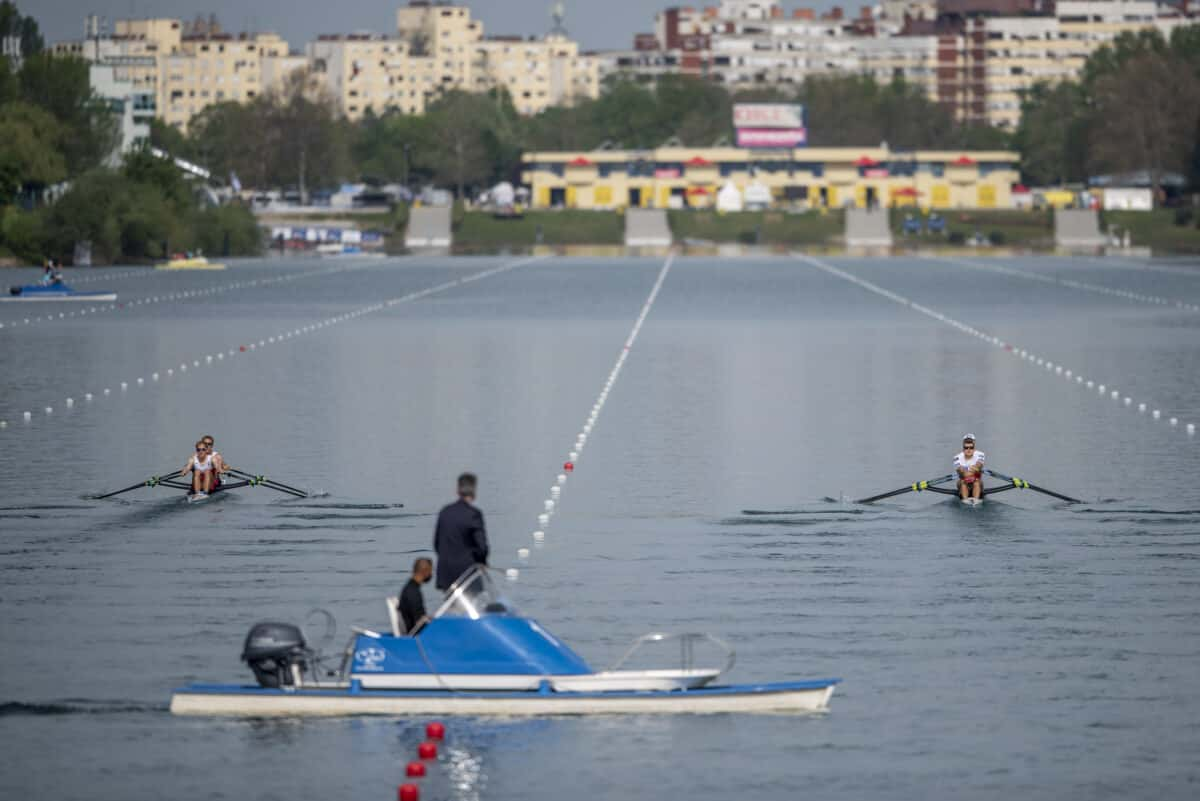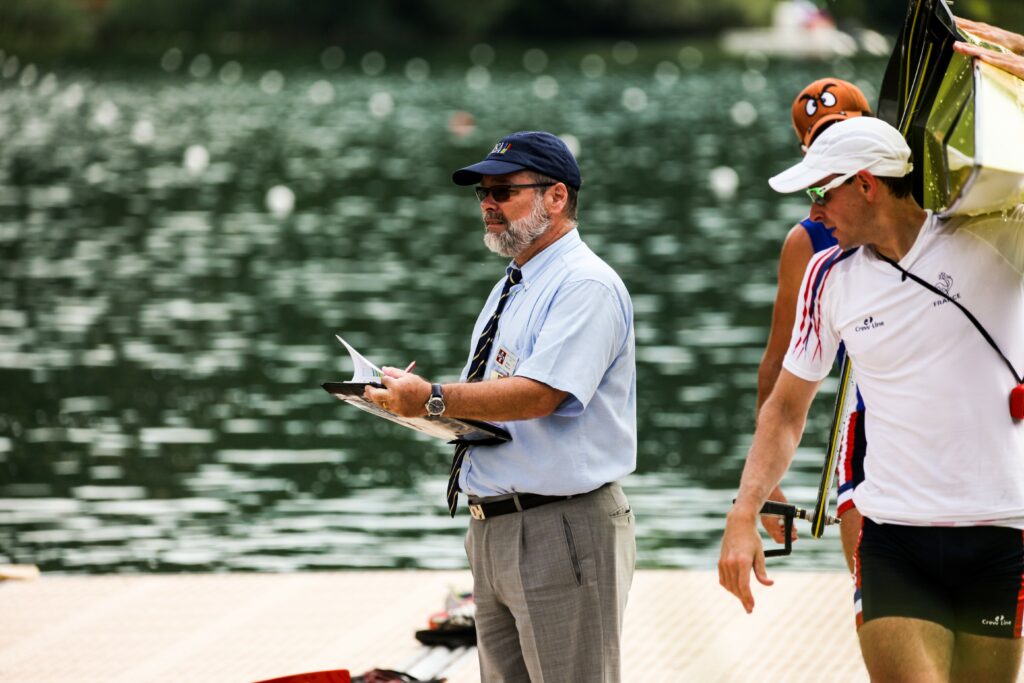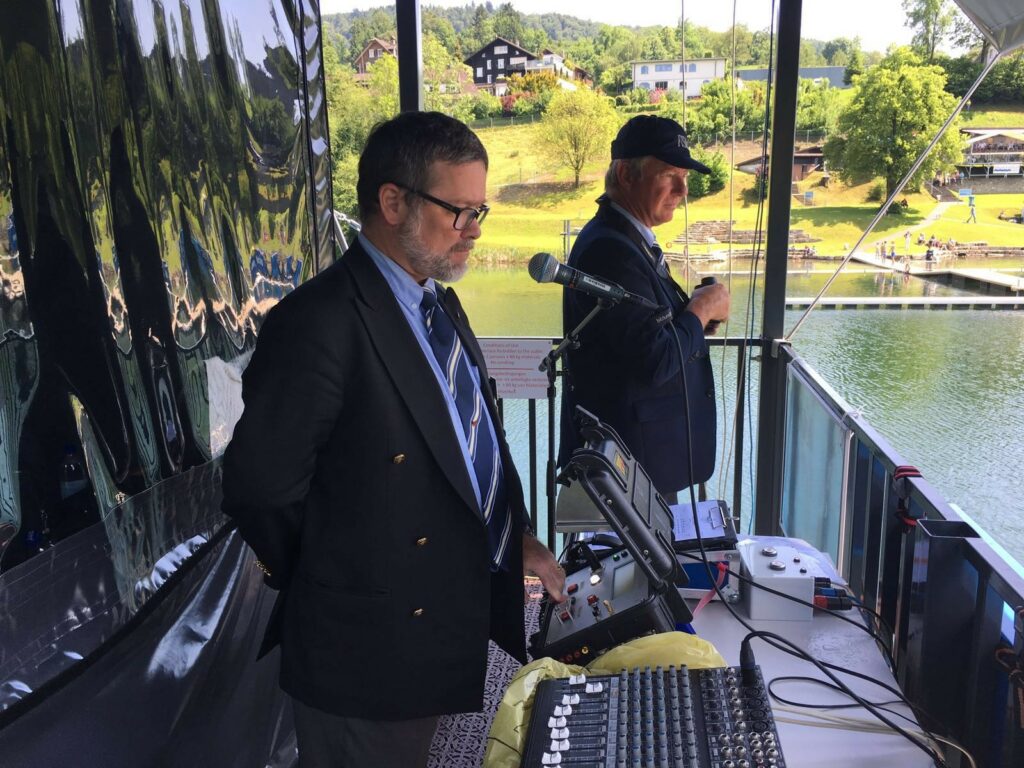
21 Jun 2021
A rowing umpire’s way of life
Behind the scenes at any rowing event are a huge number of people making sure that the event can take place. One group of these are the rowing umpires.
Rowing umpires may do one of the most unappreciated jobs. They do their very best to allow rowers to compete under safe and fair conditions.
While many of them abide by the mantra “it’s a successful regatta if we are not seen,” the amount of dedication, knowledge and passion that they put into maintaining their umpire’s license is astounding.
Being an umpire means something different for everyone who steps forward to do the job. For Blaise Neyroud, a World Rowing umpire since 1994 from Switzerland, there is no hesitation: he loves being at the service of the rowers.
“Being an umpire is a very good method to live a regatta from inside, to build friendship with persons you would never meet any another way. But the most interesting part is to be at the service of the athletes.”

It has been 25 years now that Neyroud help with the sport he fell in love with at age 16, when he first jumped on a boat in Vevey, on the eastern shores of Lake Geneva.
“After a little career as a rower and a good experience of being a coxswain for two years, I spoke with the president of the Swiss umpiring commission (Fritz Weber) and he invited me to join the gang.” One season of full training and attending national regattas later, Neyroud successfully passed his national and World Rowing license exam.
The main task of a rowing umpire is to ensure fairness and safety by manning a variety of positions essential to a successful regatta. They are not as exposed as football or basketball referees, but they often have to make some challenging decisions – especially in local or national regattas.
“It is always essential to know why the decision is made. And I always have the support of the president of the Jury. As president of the Jury, I always support the decision of an umpire as long as they can explain their decision,” says Neyroud.
One example that Neyroud remembers is the one from a World Cup in Lucerne a couple years ago.
“We had a huge storm coming in. Seeing it from the start, I refused to give the start and sent the rowers to the pontoon before it was too late. That could have been a very questionable call, because rowers were ready to race. But I would do that again.”
Human error is inescapable. How do umpires cope with that?
“I remember calling and starting in Lucerne a 1x heat, lane 6, saying “China” for a Chilean (CHI) rower. He found me after the race to kindly say I made a mistake. It happens. As an umpire, you should always anticipate. This is the best advice I had from other umpires and this is what I’m telling to young umpires joining the gang. We always have to keep in mind that the important and essential person is the rower.”

Being a rowing umpire means a lot of sacrifices. But it also means some unforgettable memories.
“The London 2012 Paralympic Games were particularly special,” remembers Neyroud. “Two weeks before, I was fired by my employer for economic reasons and the Games occurred at the perfect time to care for nothing except rowing. The organisation was so perfect, the public so excited, the athletes so … athletes. It is engraved deeply in my memory.”
In rowing, there are no full-time umpires. They all have jobs and activities and need to coordinate their working calendars with the rowing season. They are not living through rowing, but rowing can’t live without them. They know the sport as much as the coaches and they are as passionate as anybody who’s attending a regatta – and they are doing all that in the shadows.
This is the singularity of an umpire’s way of life.

